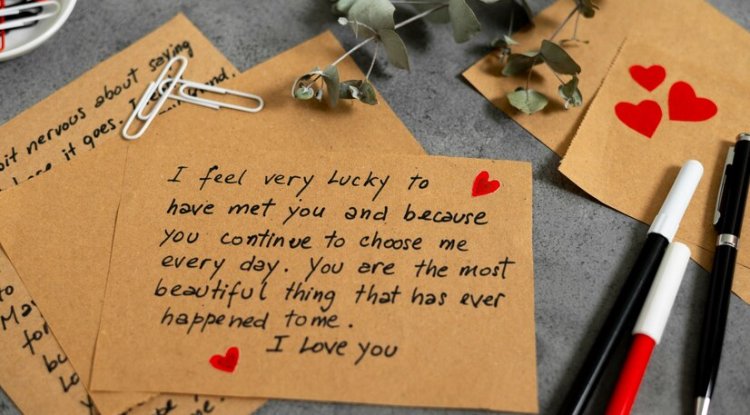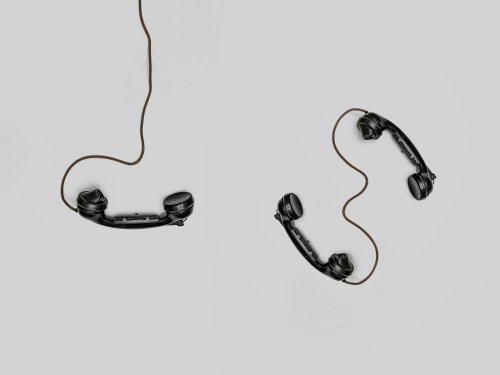Loving Someone With Avoidant Attachment Style: What to Know and How to Cope
Is loving someone with avoidant attachment style exhausting you? Learn what's really happening and get practical tips on how to navigate the relationship.

Loving someone with an avoidant attachment style can feel like an emotional rollercoaster—one moment they’re warm and attentive, the next they’re distant and withdrawn. If you often find yourself questioning where you stand or why your partner keeps pulling away, you’re not alone. Understanding what it means to love someone with an avoidant attachment style is the first step toward creating clarity and emotional balance in your relationship.
Avoidant partners aren’t cold or uncaring by nature; their behavior is rooted in deep-seated fears of vulnerability and dependence. While this can make relationships challenging, it’s not impossible to build a meaningful connection. In this guide, we’ll explore what avoidant attachment truly means, why it happens, how it affects your relationship, and what you can do to love someone with an avoidant attachment style without losing yourself in the process.
What Is Avoidant Attachment Style?
Avoidant attachment develops when a person learns early in life that relying on others results in disappointment. Maybe their parents were emotionally unavailable, dismissive of their needs, or inconsistent in their care. As children, they realized that the safest approach was to rely solely on themselves and keep their emotional needs hidden.

Now, as adults, people with avoidant attachment crave connection just like everyone else. But intimacy triggers their deepest fears. Getting close means risking rejection, losing independence, or being controlled. So they've developed strategies to maintain distance even while in relationships.
When you're in a relationship with someone who has an avoidant attachment style, you'll likely notice patterns that can be confusing and hurtful. They pull away when things get too intimate, need excessive space, and struggle to express emotions. This doesn't mean they don't care about you, but it does mean the relationship will require patience and understanding that not everyone can sustain.
Common Behaviors You'll Encounter
Recognizing avoidant behaviors helps you understand what you're dealing with. Your partner probably does several things that leave you feeling insecure:
- They pull away after moments of closeness
- They avoid deep conversations about feelings
- Alone time is essential for them, and they get irritated when you want more connection
- Parts of their life are distinctly separate from you, shrouded in mystery
- They struggle to commit to or define the relationship clearly
These behaviors serve a purpose for them. Even though it may come off as harsh, they're actually trying to protect themselves from vulnerability. So, when you try to get closer, their nervous system screams "DANGER!" And so, they retreat. Yes, it's not logical or fair to you, but it's automatic for them.
You might also notice they idealize independence and self-reliance. They'll tell you they don't need anyone or they're fine on their own. This dismissive attitude toward emotional needs is a defense mechanism. Deep down, they do need a real connection. They've just convinced themselves that needing others makes them vulnerable to pain.
How It Affects You Emotionally
Loving someone with an avoidant attachment style takes a serious toll on your emotional well-being. You start questioning yourself constantly. Am I too needy? Am I asking for too much? You start walking on eggshells, trying not to trigger their withdrawal, editing yourself to avoid seeming clingy or demanding.
The hot and cold cycle easily messes with your head. They'll be super into you and affectionate one day, then distant the next day. This inconsistency is bound to keep you anxious, always trying to figure out where you stand. You might find yourself becoming more and more anxious in response to their avoidance, which ironically pushes them further away.
Over time, you may lose touch with your own needs as you begin to hyperfixate on trying to figure out what they feel at every given moment. You get so focused on managing their discomfort with intimacy that you forget to ask whether your needs are being met. You convince yourself that you're just patient enough, and they'll eventually open up. Sometimes that happens. Often, though, you just end up feeling lonely in a relationship that should make you feel connected.

Understanding Their Perspective
Now, here's something important: your avoidant partner isn't deliberately trying to hurt you. From their perspective, they're managing overwhelming feelings the only way they know how. Closeness literally feels threatening to their nervous system. When you want more connection, they experience it as pressure that triggers their need to escape.
They probably don't even fully understand their behavior. Many avoidant individuals are unaware that they have an attachment issue. They believe they value independence more than others do, or that their partners are too needy. They've normalized their discomfort with intimacy.
Your partner might struggle with accessing their emotions. They've spent years pushing feelings down, so when you ask how they feel, they genuinely might not know. This isn't difficult for them. They've disconnected from their emotional world as a survival strategy.
Setting Healthy Boundaries
When you're in a relationship with someone who has an avoidant attachment style, boundaries become essential. It's crucial to establish a clear understanding of the behaviors you can tolerate and those that exceed your limits. Wanting space is reasonable. Disappearing for days without communication isn't. Needing time to process emotions is fine. Refusing to discuss relationship issues at any time is not acceptable.
Communicate your boundaries directly and calmly. Tell your partner what you need from the relationship in order to feel secure. Instead of framing it as criticism, present it as information about your needs, such as, "I understand you need alone time, and I respect that." What I need is clear communication about when you'll be available again."
Then stick to your boundaries. This is where many people struggle because enforcing boundaries with avoidant partners often triggers their withdrawal. But if you don't maintain your standards, you teach them that pulling away is a way to avoid accountability.
Communication Strategies That Work
Traditional relationship advice about communication often fails with avoidant partners. That's because having a serious talk about feelings might send them running. So instead of doing that, you need approaches that don't trigger their defenses as intensely.
Keep conversations short and focused. Instead of a two-hour discussion, have a ten-minute check-in about one specific issue. Avoidant people get overwhelmed by too much emotional intensity at once. So, smaller doses of vulnerability are easier for them to handle.
Use "I" statements rather than "you" accusations. Say "I feel disconnected when we don't talk for several days" instead of "You always ignore me." This reduces the chance they'll become defensive and shut down completely. Give them time to process. Avoidant people often need space to sort through their feelings before they can articulate them.
When to Stay and When to Walk Away
This is the hardest question. Sure, loving someone with an avoidant attachment style can work, but only under specific conditions. Your partner needs to acknowledge their attachment style first. Then they must actively work on it. If they refuse to recognize the pattern and insist there is nothing wrong, you're fighting a losing battle.
So, ask yourself these questions honestly:
- Are my core needs being met in this relationship?
- Am I becoming a smaller version of myself to accommodate their limitations?
- Do I see genuine effort and progress over time?
- Can I sustain this level of emotional work without resentment building?
- Am I staying in this relationship out of love or out of hope that they'll change?
If you're lucky, your avoidant partner will recognize their patterns and commit to growth. They go to therapy, practice vulnerability, and gradually become more emotionally available. If you're seeing consistent effort and improvement, staying makes sense. But if your partner refuses to acknowledge the problem or blames you for being too needy, protecting yourself becomes necessary.
Taking Care of Yourself
As you navigate a relationship with someone who has an avoidant attachment style, prioritize your own well-being. Maintain your friendships, hobbies, and identity outside the relationship. Don't make your partner your entire world, especially when they keep pushing you away.
Consider therapy for yourself. A good therapist can help you understand your attachment style, set healthier boundaries, and process the emotional impact of being with an avoidant partner. Their avoidance may trigger an anxious attachment style within you.
At every stage, cultivate self-compassion. Wanting connection and emotional intimacy does not make you weak or needy, as these are fundamental human needs. If your partner can't meet them and won't work on becoming more capable of intimacy, that's vital information about compatibility, not a judgment of your worth.

Can Avoidant Partners Change?
Yes, absolutely! But it requires genuine commitment and usually professional help. Attachment styles form early but aren't permanent. With therapy and consistent effort, avoidant people can develop more secure attachment patterns. They can learn to accept intimacy as a vital factor of the relationship, express emotions, and stay present during conflict.
That said, it's essential to remember that the change process won't be quick or linear. Your partner will make progress, then slip back into old patterns when stressed. If you decide to work with someone who has an avoidant style, it's essential to maintain realistic expectations regarding the timeline and workload.
Couples therapy can be beneficial because it provides a safe space to address relationship patterns with professional guidance. A skilled therapist can help your avoidant partner understand how their behavior affects you while teaching both of you healthier ways to interact.
Moving Forward With Clarity
Loving someone with an avoidant attachment style will always present unique challenges. The question isn't whether it's hard, because it definitely is. The question is whether the relationship provides enough fulfillment to justify the extra emotional labor that it requires from you.
Some relationships with avoidant partners evolve into secure, satisfying partnerships when both commit to working on their attachment patterns. Others drain you slowly until you wake up one day and barely recognize yourself anymore.
Pay attention to patterns over time rather than isolated incidents. Is the overall trajectory moving towards more security and openness, or are you stuck in the same cycle year after year? Does your partner show genuine curiosity about their attachment issues and willingness to change, or do they continually dismiss your concerns?
Trust yourself to know what you can sustain and what crosses into self-abandonment. You deserve a relationship where you feel chosen, valued, and secure. If loving someone with an avoidant attachment style means constantly sacrificing your emotional needs, it might be time to ask yourself some hard questions about whether this is the right relationship for you.
Remember that understanding attachment styles gives you clarity, not an obligation to stay in a relationship that hurts you. Sometimes, the best thing you can do for yourself is realize when someone can't meet your needs.
That's not failure; that's wisdom!
Share
What's Your Reaction?
 Like
0
Like
0
 Dislike
0
Dislike
0
 Love
0
Love
0
 Funny
0
Funny
0
 Angry
0
Angry
0
 Sad
0
Sad
0
 Wow
0
Wow
0















